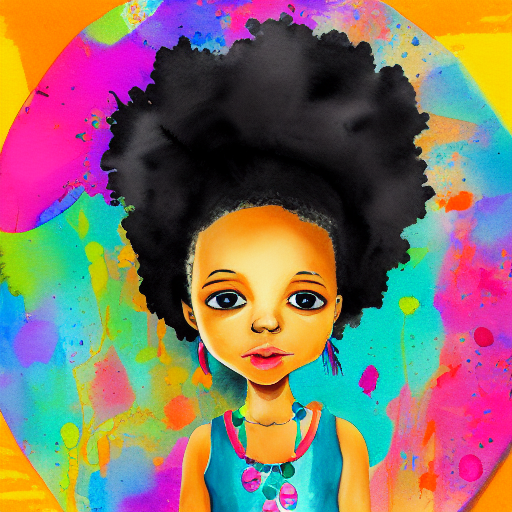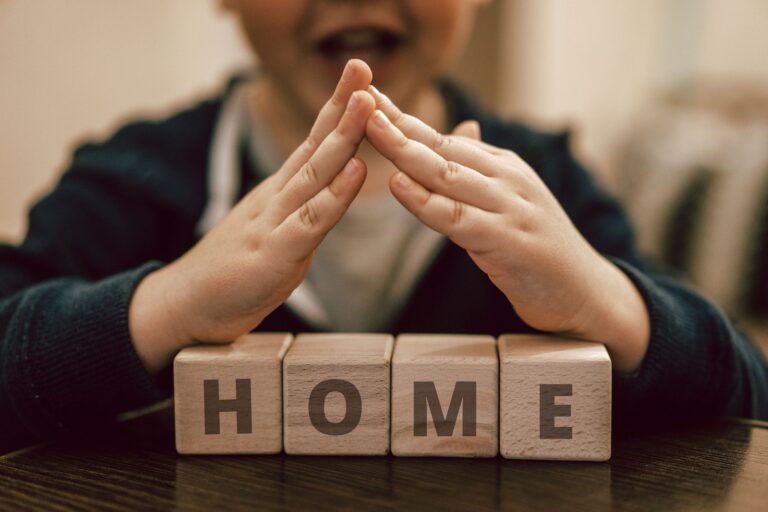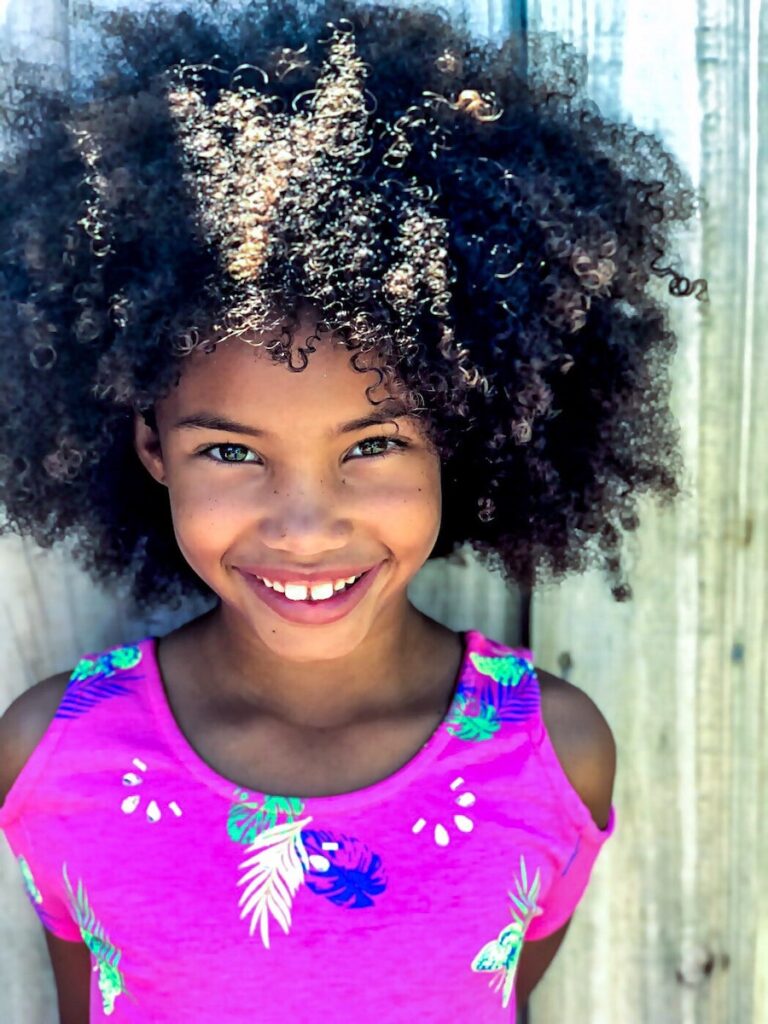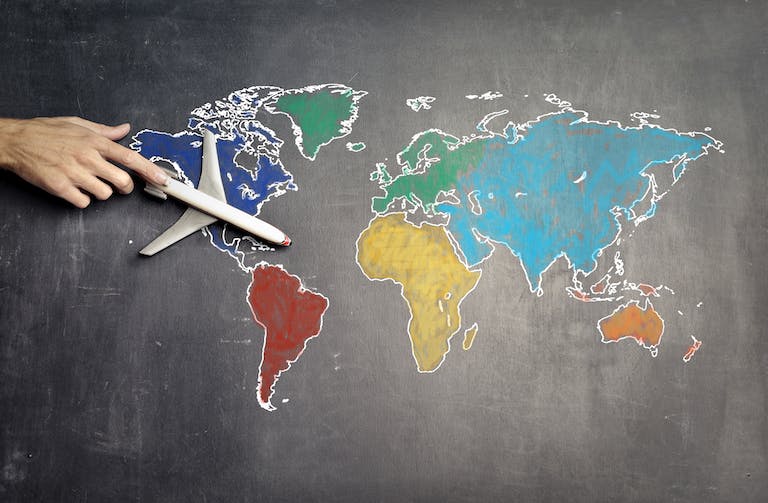As a Black parent, it can be difficult to cope with the racism and discrimination you may face. But don't worry – you are not alone. I have created a blog so that other blended parents can find support and information.

Experiencing racism
Experiencing racism when raising white children can be a difficult task. Many parents may not be aware that they are sending their kids subliminal messages about race. Children learn from their parent's actions, so white parents need to examine their behavior and consider how it may reproduce racial stereotypes and forms of inequality. Black parents have the same responsibility when the ethnic makeup is reversed. For example, I have a daughter with blonde hair and blue eyes, and initially, people will assume I am babysitting or, worse, that she is just wandering around alone. Then she starts speaking can, calling me “mommy,” and their eyes widen for various reasons. One reaction is, “Oh, how sweet,” like we are playing a game. Another reaction is shock and wondering how they can ask why she calls me mommy. Still, another is disbelief and wants to know who is allowing “this” to happen.
When talking to your children about race, do so in a way that promotes openness. For example, if you don't know the answer to a question, be honest and explain that you will look it up and share it when you know it. Also, ensure your child goes to a school or club with children from different ethnicities, and encourage them to join these activities.
Dealing with discrimination
As a parent, you should strive to teach your children about fairness, diversity, and inclusion from a young age. Talking to your children about the history of racism and civil rights is also important. Children learn by example, so it is important to challenge any bias you may have and to show respect for all people. Juneteenth is an excellent time to discuss Black History and American History, especially what is not included in textbooks.
You can talk to your children about what to do if the police stop them. Recent racial unrest has forced many parents to think about how to discuss with their children about race and identity. Jennifer Harvey, the author of Raising White Children, discusses the subject. This book is engaging and brings up hard but needed topics about race and diversity.
“While a great deal of public discussion exists regarding the impact of race and racism on children of color, meaningful dialogue about and resources for understanding the impact of race on white children are woefully absent. Raising White Kids steps into that void.”-Jennifer Harvey.
Finding support
Raising kids across racial lines presents its own set of challenges and opportunities. Parents of biracial and transracially adopted children can find support and information in various places, including online communities. Thankfully, these resources can help families navigate challenging times and everyday concerns.
A great online resource is EmbraceRace, which offers articles and webinars. Its website features Dr. Sandra “Chap” Chapman, a racial identity expert who advocates for positive socialization and development for children of mixed or biracial backgrounds. She discusses how race impacts how children perceive themselves and the benefits of promoting positive racial identity.
Preparing for a blended family
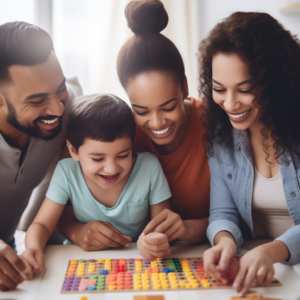
Preparing for a blended family can be challenging, but it is not impossible. Most blended families live in mixed neighborhoods, and it is easier to integrate into the community. In addition, discussing family issues beforehand is one of the best ways to handle racially charged questions.
As a Black parent, recognize that your children's experiences will differ from those of your white children. However, you must prepare them for the experiences they will encounter.
Adapting to a new culture
Raising children of different races can be difficult for both parents. Especially when there is a large racial divide, it cannot be easy to understand your children's culture. Black parents often speak to their kids about the law, the police, and what to say if they are stopped. However, with recent unrest sparked by police brutality against blacks, many parents are reconsidering how they speak to their kids about race.
Jones-Baldwin has been connecting with other Black parents raising children of different races in recent years. She started a blog called Raising Cultures, which has gained popularity across several social media platforms. The blog serves as a resource for parents and a supportive community.
Learning from the experiences of others
Learning from the experiences of others and discussing challenges can be invaluable tools in raising white children. There are several ways to engage children in conversations about race. For example, introducing your child to African-American churches or Spanish-speaking neighborhoods will allow them to understand what it is like to be in the minority.
Children generally pick up messages about race by the age three or four. They begin to display implicit and explicit biases toward other races by this age. Kristin Shutts, Ph.D., of the University of Wisconsin-Madison, states, “[racial bias] begins in the preschool years.”
My daughter came home during this age range and told me everyone in our family has black hair except her. She said her hair was yellow. I picked her up, went into the bathroom, and looked in the mirror. I explained that her blonde hair and blue eyes were beautiful and special to her. I lost the debate after a little back and forth about her hair being called blonde and not yellow. She logically explained that since I change my hair so often and they are different colors- I tried one blue wig once, and now I'm a rainbow- my next hairdo should be yellow to match hers. I agreed. My next hairdo will be blonde.
Now is a great time to come together and learn about each other, support, prepare, and adapt to each other. As a Black parent navigating the complexities of blended families, it's important to acknowledge the unique challenges you may face, including racism and discrimination. However, it's crucial to remember that you are not alone in this journey. Therefore, we have created this blog with other parents who share similar experiences as a safe space to provide support, resources, and valuable information.
In a world that may not always understand or fully embrace the diverse dynamics of blended families, we stand together to empower and uplift Black parents. Our goal is to promote a community where you can find solace, exchange stories, and access the tools you need to navigate the intricacies of raising children in a blended family.
Through shared experiences, we aim to address the specific challenges that arise from racism and discrimination, guiding how to cope, overcome, and advocate for your children. Every child should grow up in a home that celebrates their cultural heritage, embraces diversity, and instills a strong sense of identity.
Within this blog, you will discover a wealth of resources, including personal stories, expert advice, and practical tips on parenting, communication, and promoting cultural understanding within your blended family. We encourage you to engage in discussions, share your insights, and connect with others who can relate to your journey.
Remember, the strength and resilience of Black parents in blended families are profound. By supporting one another and leveraging the power of community, we can create a nurturing and inclusive environment that empowers our children to thrive.
While navigating the challenges and triumphs of a blended family, remember that you are not alone. We are here to provide a helping hand, a listening ear, and a source of inspiration. Together, we can embrace the beauty of our diverse backgrounds and create a legacy of love, strength, and unity for our children.
Join us in this journey of empowerment, celebration, and growth. So, we can build a brighter future for our blended families filled with love, understanding, and resilience.
